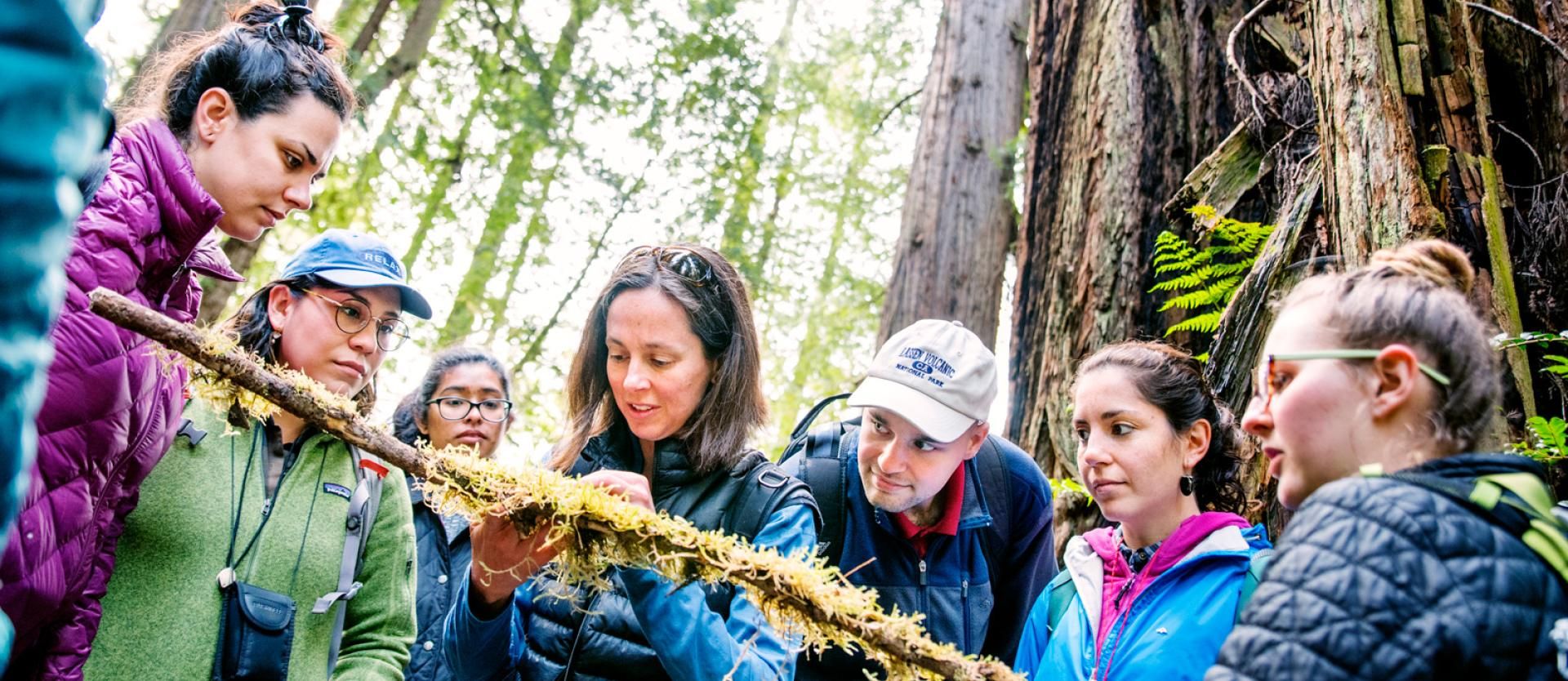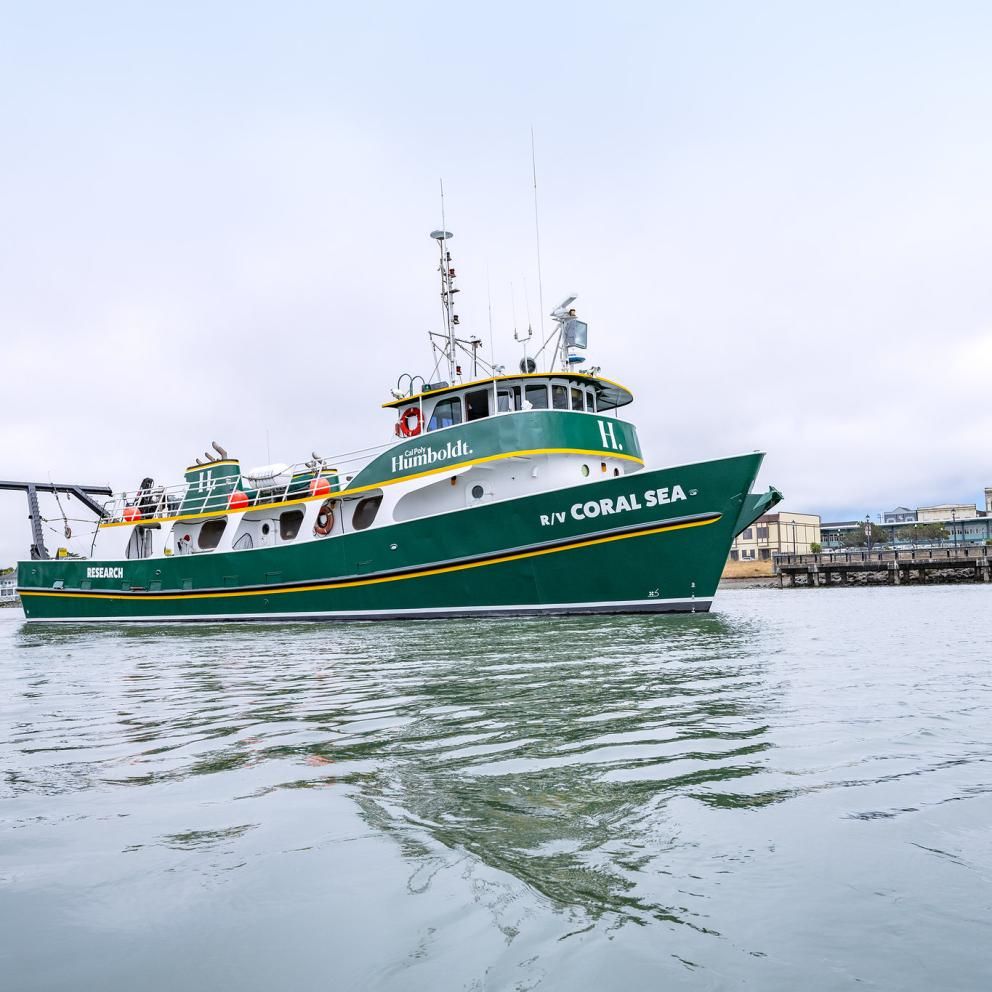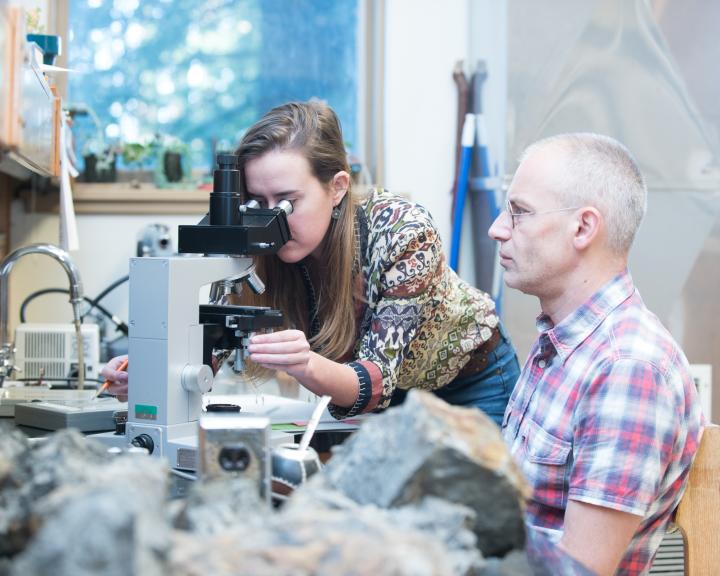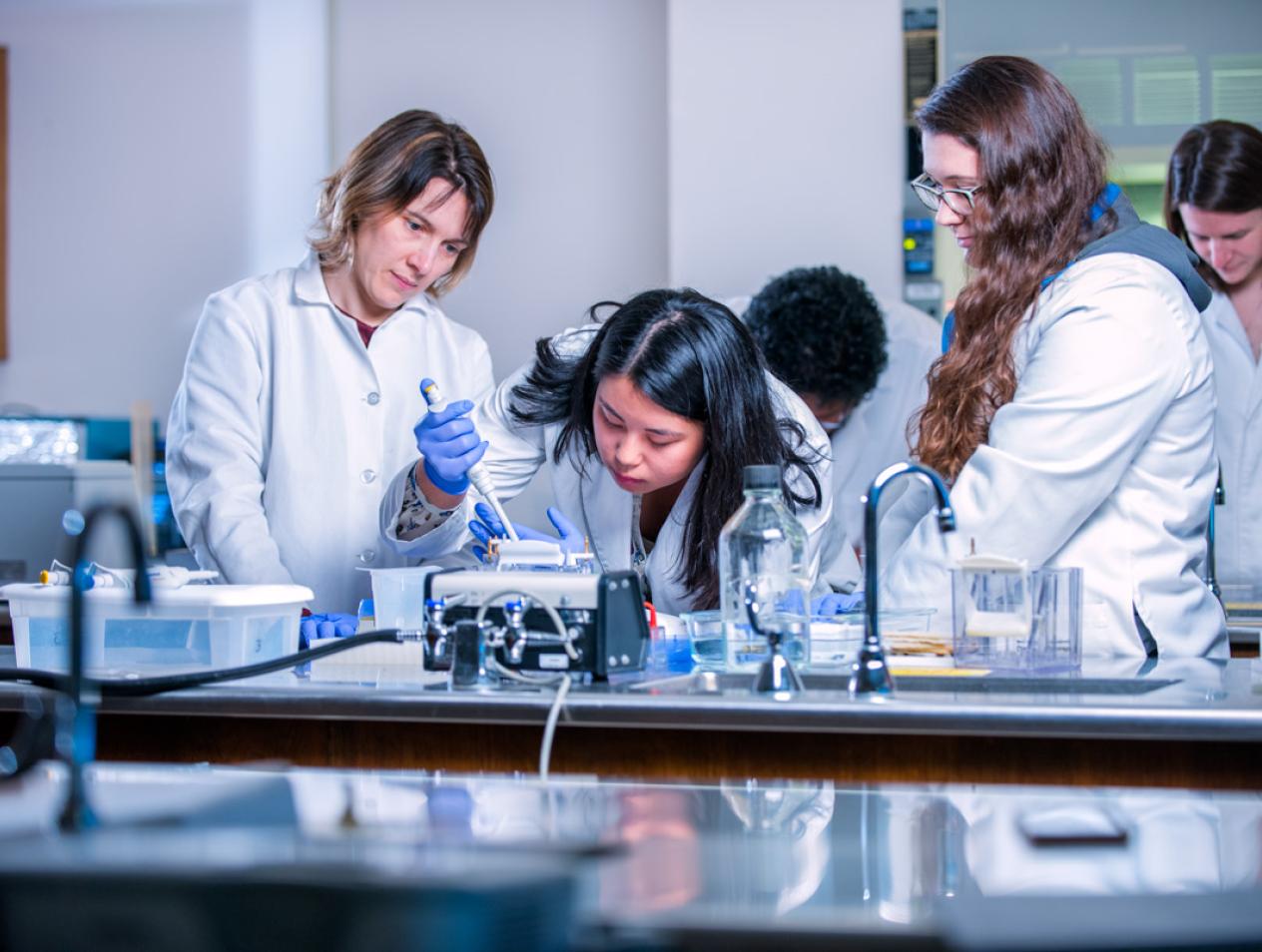Breadcrumb
Biology, B.S.
Cal Poly Humboldt is an incredible place to study biology. Our faculty are dedicated to teaching excellence and hands-on learning, instructing courses that utilize specialized equipment, impressive natural collections, laboratory facilities, and the ecologically diverse field sites of our region. Extensive opportunities for research prepare our students for a wide range of careers in biology. Come be inspired!
Biology majors study organisms and how they function in the natural world. You can be a general biology major or focus your studies by choosing a concentration.
Why this Program
The perfect environment for laboratory and field research. Our facilities are surrounded by ancient redwoods and are near the Pacific Ocean, pristine rivers, mountains, and wetlands.
We are dedicated to student excellence through hands-on learning. Work with faculty, staff, and students to get involved in research and other activities.
Humboldt is home to extensive natural collections, accessible research facilities, and specialized advanced equipment like electron microscopes and a CT scanner.

Program Concentrations
This concentration is designed to allow a wide range of flexibility in designing a program to meet an individual student’s needs.
This concentration is designed for biology majors interested in understanding the cellular and molecular processes that govern biological form and function. The coursework includes training in the questions and experimental methods required to study organisms at the genetic, molecular, and cellular levels. Our laboratory facilities provide unique hands-on training that prepares students for graduate studies, medical school, and jobs in scientific laboratories.
This concentration is designed for students who are interested in a hands-on approach to understanding how living organisms interact with one another and the environment, and the consequences of these interactions for biodiversity and ecosystem function.
This concentration provides a broad, laboratory-oriented background in the study of microorganisms of all kinds (bacteria, algae, fungi, protozoa, viruses, etc.), including structure, identification, physiology, genetics, ecology and parasitism, artificial culture, and experimental technique.
This concentration is for students who want to teach biology at the secondary (high school) level. One additional year of courses (after the B.S.) can lead to a teaching credential.
Did you know?
The Coral Sea is Humboldt’s 90-foot ocean going research and teaching vessel, students can collect and observe marine plants and animals in their natural environment.
The Humboldt Vertebrate Museum houses a legacy collection of more than 15,000 specimens.
We hold a quasi-weekly research seminar series with national and international participation.

Careers
Favorable opportunities can be expected for biological scientists with advanced degrees and for bachelor's candidates with outstanding educational and experiential backgrounds. Employment in the life sciences is expected to grow due to recent advances in genetic research, advances in biological technology, and efforts to conserve the environment.
- Field Biologists
- Ecologists
- Microbiologists
- Physiologists
- Marine Biologists
- Geneticists
- Cell Biologists
- Developmental Biologists
- Biotechnology Researchers
- Biochemists







